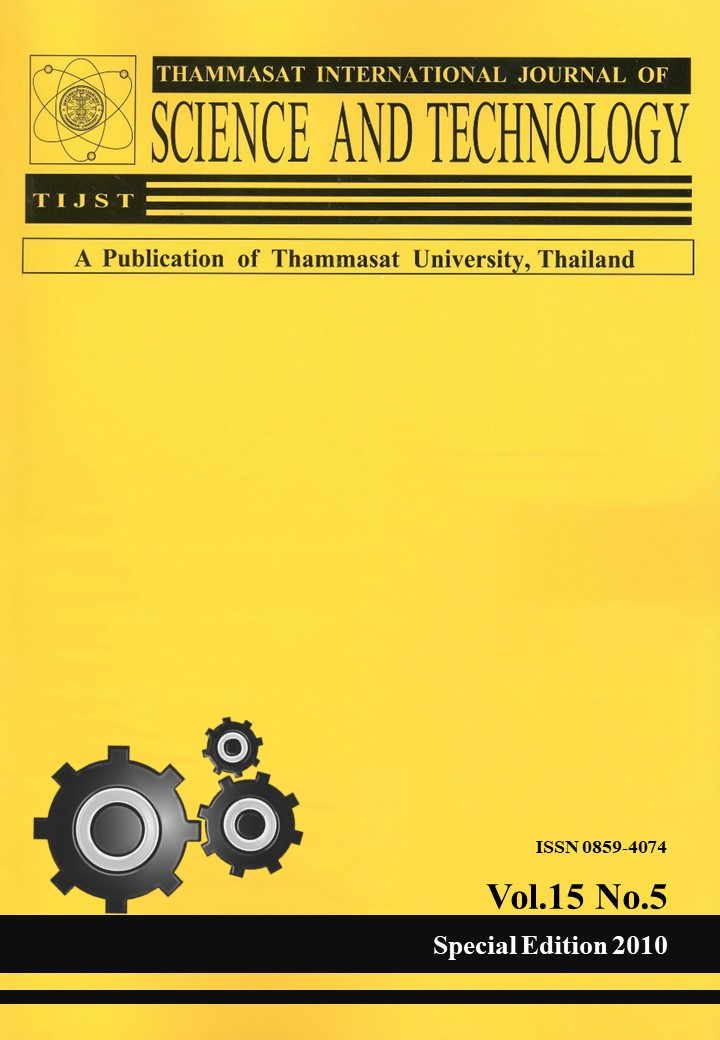The Effect of Storage Degradation of Palm- Stearin Biodiesel on Engine Performance and Exhaust Emission
Main Article Content
Abstract
The main objective of this experimental study is to determine the effects of biodiesel degradation on the fuel properties, the engine performance and exhaust emissions of a diesel engine by keeping biodiesel in closed containers at room temperature for different storage times. In this work, the biodiesel derived from palm stearin was investigated. The study was conducted for a period of 6 months. At the beginning of the study and at end of every month, the stored biodiesel was analyzed for changes in acid value (AV), iodine value (IV), peroxide value (PV), viscosity and methyl ester content. Results showed that AV and PV increased, while methyl ester content decreased with storage time upto 6 months. Viscosity changes were not significant within the 6-month storage time. The engine performance and exhaust emission results indicated that, the brake power of petroleum diesel was comparable to those of fresh and stored biodiesels, while the fuel consumption of biodiesel was higher than petroleum diesel by about 5 % and this trend increased slightly as the biodiesel degraded. Furthermore, the fuel conversion efficiency of degraded biodiesel continually decreased with storage time. In terms of emission, fresh biodiesel produced half the CO pollution compared
to petroleum diesel and, as the biodiesel storage time increased, the emission of CO was even lower. On the other hand, the NOx emission increased with longer biodiesel storage time.


